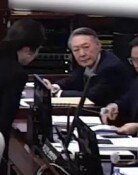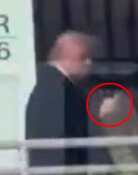[Editorial] Fine-tuning of FTA Possible
[Editorial] Fine-tuning of FTA Possible
Posted November. 20, 2009 08:47,
President Lee Myung-bak yesterday said that if the auto sector is an issue in the bilateral free trade agreement with the U.S., he is willing to talk about it again. Cars are a new variable in the deals ratification process at a time when U.S. calls are growing over the renegotiation of the automotive portions of the deal. Both leaders spent a great deal of time discussing the agreement in yesterdays summit. They reconfirmed the economic and strategic importance of the accord, but showed that there is a long way to go before ratification.
The free trade deal is the joint achievement of the two countries after 14 months of arduous negotiations. Twenty-nine months have passed since the signing of the pact. In principle, it should come into effect after both countries ratify it, but fine-tuning of details without shaking up the framework of the deal is possible if additional discussion is needed because of Washington. President Lees comment, however, should not signal renegotiation from the ground up.
Obama mentioned the U.S. trade imbalance with Asia as an obstacle to the ratification of the agreement. Though its trade deficit with Korea is not striking, the U.S. tends to see Asia as a group. While the U.S. trade surplus with China is 300 billion U.S. dollars and that with Japan 70 billion to 80 billion dollars, Koreas trade surplus with the U.S. is merely eight billion dollars. Given the money the U.S. makes through investment companies in Korea or in the service sector, bilateral trade is pretty balanced. The U.S. argument for additional negotiations because of the trade imbalance is not convincing.
Just like the American auto industry, Koreas agricultural and service sectors are unsatisfied with the agreement. The U.S. must recognize the potential win-win situation if it accepts Seouls demands in the agricultural and service sectors in return for auto concessions to Washington.
The two leaders called each other friends. The close relationship between them could serve as momentum for bilateral cooperation. If major issues such as the free trade deal and North Koreas nuclear program show no progress, however, their friendship and confidence could prove meaningless. Obama will send former U.S. Ambassador to Korea Stephen Bosworth, who is now special envoy to North Korea, to Pyongyang Dec. 8. If Obama considers President Lee a friend, he should tell Bosworth to clearly inform North Korea know about the agreement between the two leaders the principle of North Koreas denuclearization in a complete and verifiable way through the six-party talks.



![[단독]㈜한화, ‘방산·조선해양·에너지·금융’과 ‘테크·라이프’로 인적 분할](https://dimg.donga.com/c/138/175/90/1/wps/NEWS/IMAGE/2026/01/14/133153661.1.jpg)
![[단독]김경 “1억원 줄때, 강선우도 함께 있었다” 자수서](https://dimg.donga.com/c/138/175/90/1/wps/NEWS/IMAGE/2026/01/14/133148772.5.jpg)


